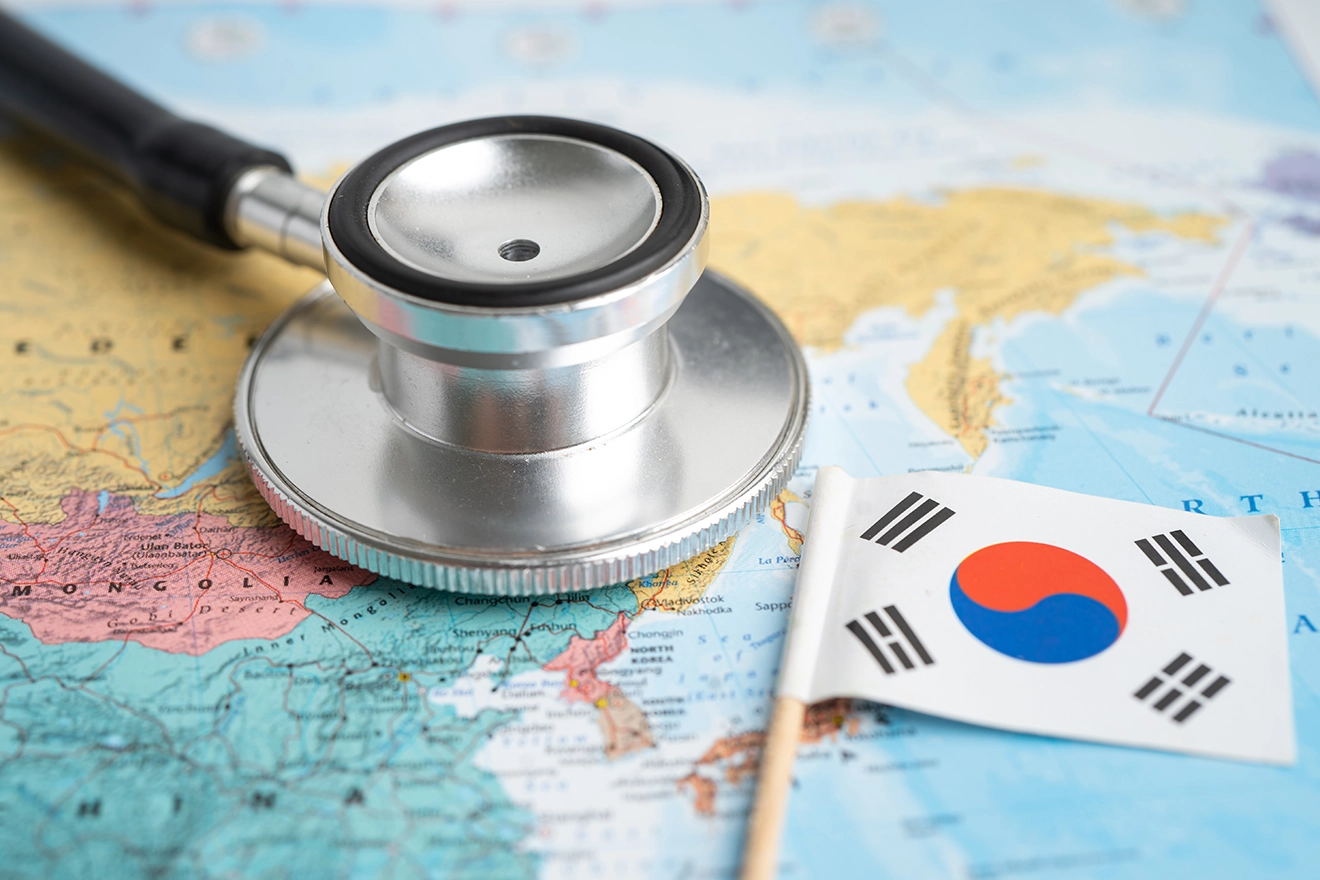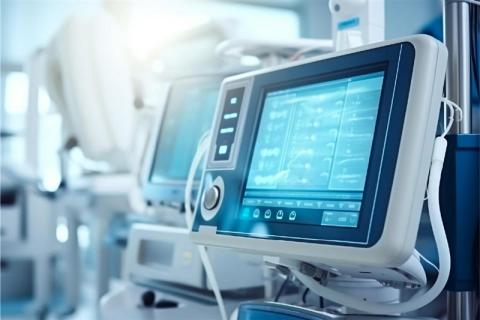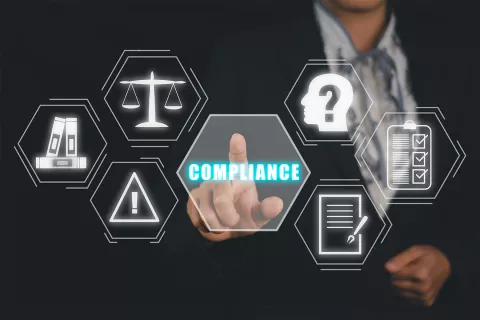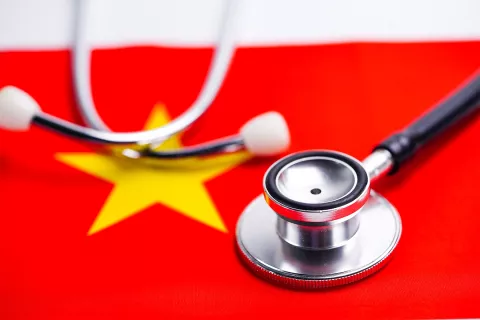
Renewing a medical device manufacturing license in South Korea is critical for ensuring the safety and efficacy of medical devices in the market. The renewal process can be complex and time-consuming. This guide provides tips to any company seeking to renew their medical device license, including criteria for renewal, how to fill in a medical device license application, common mistakes to avoid, and the consequences of non-renewal.
By following this guide, companies can successfully navigate the renewal process to obtain their medical device distributor license and thereby ensure the continued safety and efficacy of their medical devices.
Criteria for South Korea Medical Device License Renewal
- South Korean medical device license renewal is required every five (05) years to ensure efficient management.
- Renewal applies to licensed, certified, or declared full-class medical devices.
- Permits (certification and notification) are granted for five (05) years from the date of permission, starting from October 08, 2020.
- Previous permits are granted separately under the “Regulations on Renewal of Medical Device Manufacturing Permits.”
- To continue manufacturing and importing after the expiration date, companies must apply at least 180 days before the expiration date and renew the permit (with a new expiration date) after reviewing the submitted data.
- During the validity period, safety and efficacy data must be reviewed according to the latest standards. Moreover, safety information and measures must be monitored to determine how appropriate it is to continue marketing the authorized device, as authorization may be lost if it is not appropriate.
Renewal Validity
Medical device manufacturing licenses, authorization certifications, notifications, and in vitro diagnostic medical device notifications are essential documents that are required for the manufacture and sale of medical devices in South Korea. The validity of the different types of documents is as follows:
- Notifications: The validity period starts from the day after the existing registration in the electronic civil complaint system ends. It continues for five (05) years from this starting date.
- In Vitro Diagnostic Medical Device Notifications: The validity period starts from the day after the expiration date mentioned in the existing notification certificate. It extends for five (05) years from this starting date.
In both cases, the validity period lasts for five (05) years from the respective starting dates.
- Authorization Certifications (Licenses): The MFDS will provide a new five-year (05) validity period.
For in vitro diagnostic medical devices, this will be updated under the “License Conditions” field of the license.
- Notification Certificates: The information source (the manufacturer or the authorized representative) will provide a new five-year (05) validity period.
For in vitro diagnostic medical devices, this will be updated under the “Certification Conditions” field of the certificate and under the “Remarks” field of the notification certificate.
Both five-year (05) periods will be recorded under the “Validity Period” field of the information source’s electronic complaint system.
Procedures to Follow Before Applying for a South Korea Medical Device License Renewal
- Legally manage permits, certifications, and reports by license, certification, and report number.
- Check for changes in the name of the item and classification number (class) in accordance with the notification in effect at the time of the revised renewal after authorization, certification, and declaration.
- Change authorization, certification, report management, annual reporting, etc.
- Report and act upon adverse events to achieve compliance with the applicable medical device laws and regulations.
The Process of Applying for a South Korea Medical Device License Renewal
- The applicant must apply for the South Korea medical device license renewal no later than 180 days before the end of the validity period.
- The renewal process varies, depending on the type of authorization, certification, or report. The renewal process for each type is as follows:
- Renewal of Authorization (Class 1, 2, 3, and 4): Director General of the Food and Drug Administration (FDA).
- Renewal of Certification (Level 2) and Report (Level 1): Information ledger.
- The applicant must apply to the Medical Device Electronic Complaint Center (https://emed.mfds.go.kr ) for renewal of their license.
- Note: If during the review of renewal submitters, it is found that they have not complied with the medical device laws and regulations, measures such as surveillance and administrative penalties may be taken against them.
The Medical Device License Application Process
Submit renewal applications 180 days before the current validity period ends. Remember that deadlines include holidays and Saturdays, and thus, plan accordingly. Late submissions are not accepted; it is crucial that you submit your application on time.
- The medical device license application should include all the data and information required for the renewal, and the company must undergo a review process to determine if the device is still safe and effective for use.
- The type of data to be submitted, include proof that safety and efficacy are maintained and that the information already submitted when obtaining a manufacturing license, etc., may be exempt from submission.
- Additionally, requirements for materials for each type of submission are specified.
- If the renewal is approved, a new permit (certificate) will be issued with a new expiration date. If the renewal is not approved, the company may lose authorization to continue marketing their device.
Tips for Completing Applications and Reports
- Read the instructions carefully before filling out the application and report forms.
- Ensure that all the required information is provided and that they are accurate and up to date.
- Use the correct format and language when filling out the forms.
- Attach all the necessary documents and ensure that they are complete and accurate.
- Pay the fee on time and ensure that you follow a valid payment method.
- Submit the application and report forms before the deadline.
- Keep a copy of the application and report forms along with all the supporting documents for future reference.
The above tips can help companies avoid common mistakes and ensure that their renewal application is complete and accurate.
Tips for Filling the Medical Device License Application Form
- Fill out the renewal application form in Form 51 of the Enforcement Rules, the renewal application in Form 51.2, or the renewal notification in Form 51.3.
- Provide the following information:
- The name and address of the applicant, as well as the name and address of the manufacturer or importer of the medical device.
- Name, classification number, and model name of the medical device.
- Date of manufacture and date of importation of the medical device.
- Date of the initial authorization, certification, or declaration of the medical device.
- Date of the renewal application.
- Reason for the renewal application.
- Additional information that may be required by the Regulatory authority.
Supplemental Materials
You may need to provide the following additional materials:
- A copy of the original license, certification, or declaration.
- A copy of the manufacturing process and quality control procedures.
- A list of all medical devices manufactured by the company.
- A list of all the changes made to the manufacturing process or quality control procedures since the last renewal.
- A list of all adverse events related to the medical devices manufactured by the company.
- A summary of the results of any clinical trial(s) conducted by the company.
- A copy of the company’s organizational chart and personnel qualifications.
- A copy of the company’s Standard Operating Procedures (SOPs) for manufacturing and quality control.
- A copy of the company’s environmental impact assessment report.
- Any other documents or materials required by the Regulatory authority.
The specific supplemental materials required may vary, depending on the type of license, certification, or declaration being renewed and the requirements of the Regulatory authority. Thus, companies seeking to renew their medical device manufacturing license should consult the relevant regulations and guidelines to determine the specific supplemental materials required.
Consequences of Non-renewal
- The medical device will expire.
- The device will not be permitted for sale or use in South Korea.
- The manufacturer of the device may be subject to fines or other penalties.
- Patients who use an expired medical device may be at risk of harmful effects on their health.
In conclusion, the renewal of medical device licenses in South Korea is a complex process that must be carefully navigated. The consequences of non-renewal can be serious, both for the manufacturer and for patients. By understanding the regulations and following the proper procedures, manufacturers can ensure that their licenses are renewed on time and that their medical devices continue to be safe and effective.
Are you a medical device manufacturer seeking to become a South Korean medical device license holder? Freyr can help you navigate the complex Regulatory landscape of South Korea and ensure that your devices are compliant with the latest regulations. Contact us to learn more. Stay informed! Stay compliant!









